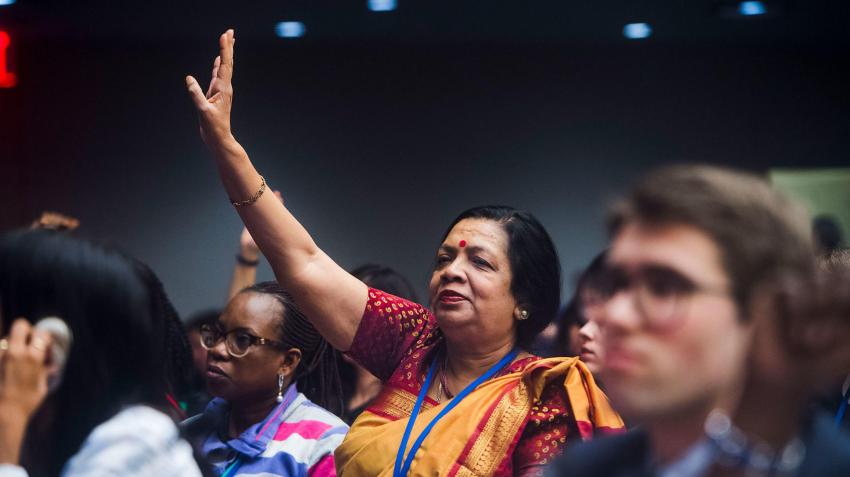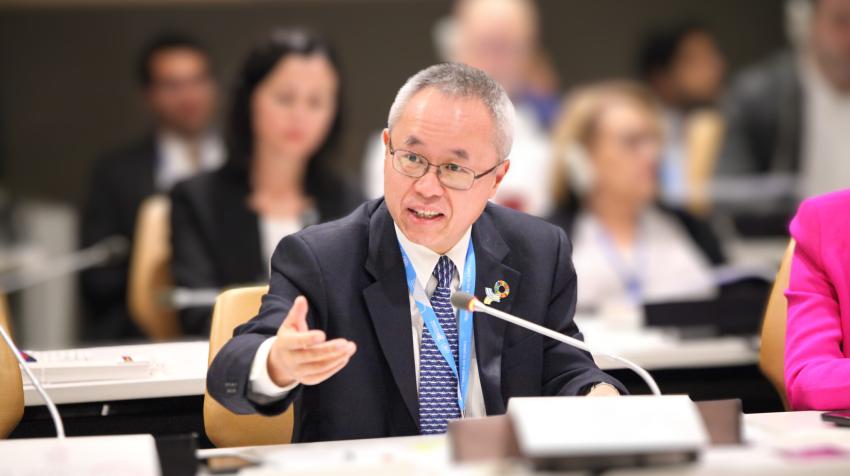The COVID-19 pandemic has imposed unprecedented challenges globally, leaving governments around the world to grapple with the crisis. Civil societies have and will always be filling the immense task of bridging the gap to address these issues that couldn’t be fulfilled by governments alone. Specially now, in the wake of the crisis, their critical role is needed more than before.
If you represent an NGO, you can get involved by addressing the many demands of our time, working alongside the United Nations. An engagement platform has been created by the UN to involve civil societies and channel their expert opinion in the United Nations deliberations. Consultative status with the Economic and Social Council (ECOSOC) is the only platform in the UN that allows the direct involvement of NGOs in these deliberations. You may apply for ECOSOC consultative status to add your voice in important decisions. Deadline for application is 1 June 2022.
Ever since its inception in 1945, the United Nations has been actively engaged with NGOs and has recognized the importance of partnering with them to advance the organization’s ideals and help support its work. In 1946, only 41 NGOs were granted consultative status by ECOSOC. But this number has grown and today, 5593 NGOs enjoy this status with the Council. These organizations are represented all over the world and work in many different areas including with education, health, poverty eradication, human rights, gender equality and indigenous issues.
Since the adoption of the 2030 Agenda for Sustainable Development in 2015, NGOs also play an important role as partners on the ground, helping the international community deliver this ground-breaking agenda. This fact was also recognized by United Nations Secretary-General António Guterres at the opening at a recent Civil Society Forum when he reiterated United Nations commitment.
“Civil society organizations link governments and people. They are a vital voice for human rights. When civil society is muzzled, we lose an essential forum for dialogue – and we lose the lifeblood of democracy. That is why I advocate at every possible opportunity for the protection and expansion of civic space,” Mr. Guterres said.
So, what are the benefits for NGOs having this status? NGOs that are accredited with ECOSOC can participate in many events, including, but not limited to, regular sessions of ECOSOC, its functional commissions and its other subsidiary bodies. They may:
- Attend official meetings;
- Submit written statements prior to sessions;
- Make oral statements;
- Meet official government delegations, UN officers and other NGO representatives;
- Organize and attend parallel events that take place during the session;
- Participate in debates, interactive dialogues and panel discussions.
The NGO Branch of UN DESA is inviting all interested NGOs that are willing to work in close collaboration with ECOSOC, to apply for consultative status. 1 June 2022 is the deadline to submit applications that will be reviewed during the following year. Read more about how to apply here .
The NGO Branch is also inviting interested NGOs to join an online webinar meeting about the application process on 3 May 2022 from 11 am to 12:30 pm EDT. Register here for this session.
For more information:
Apply for ECOSOC consultative status now in order to be considered by the 2023 NGO Committee
How to apply for ECOSOC consultative status
Webinar and information session on application process on 3 May 2022 (in English)




